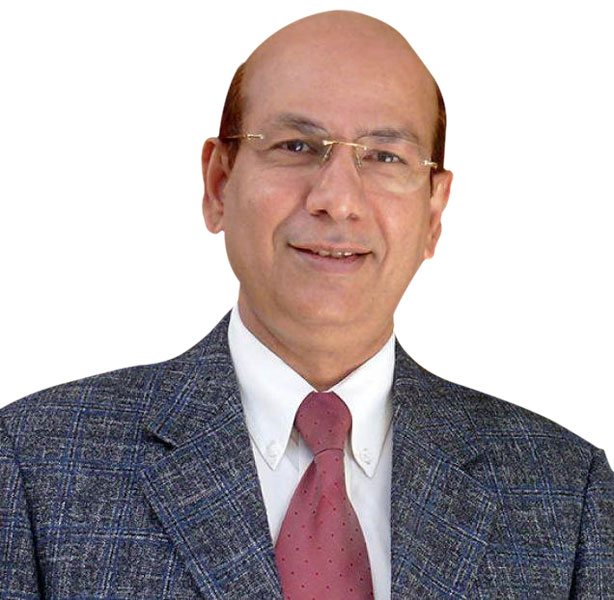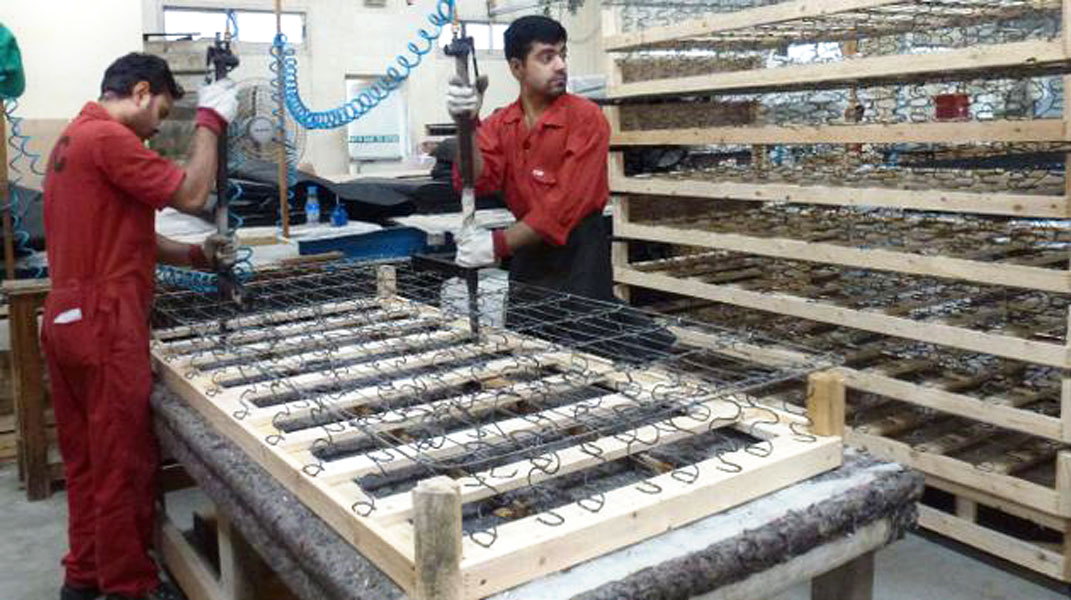How much time do you spend while selecting or buying a mattress for your bed? And how often do we rotate the sides, or flip the mattress, or change it for a new one? The same question holds true for the pillows we use.

S Sundar Rajan is the Executive Director of Dubai Furniture Manufacturing Company (DFMC) which manufactures high quality mattresses — the Serta brand which is the number one mattress in the US and KingKoil brand, which has a 60 per cent market share in the Middle East.
Unlike in the developed world, Indian customers touch and feel, and at the most sit on a mattress. But by mere touching and feeling and sitting on it, you can’t decide. You have to lie down on it and then decide.
He says that in the western countries as well as in places such as Dubai, prior to buying a mattress, people do a lot of research because they feel selecting the right mattress, using it properly and maintaining it, contributes a lot to your wellbeing. “You spend a third of your life on the bed, the amount of time you don’t spend anywhere else daily… be it your car, sofa, or a chair. A good night’s sleep will keep you fresh, energetic, agile and you can look forward to good work the next day. But without a good night’s sleep, you will feel terrible the next day,” he says.
An evolving market
He says that in India, people have just begun to understand the importance of a good night’s sleep; “youngsters are getting health conscious, which can be seen from the proliferation of gyms, but the importance of a good mattress is yet to catch up.” And hence cotton mattresses prevail in India, followed by coir and foam, but a quality spring mattress market is yet to evolve.

Executive Director, Dubai Furniture Manufacturing
Company
He estimates the Indian mattress market at ₹300-400 crore, excluding the cotton market which is totally in the unorganised sector. The spring mattress market is too small, and the main space in the organised sector is in the coir and foam market, and to some extent the latex market. The ratio is the opposite in the developed world where the spring mattress market is around 90 per cent and the rest only 10 per cent, he says.
But this market has potential to grow and hence his company has entered India with the Serta brand of mattresses, which are basically quality spring mattresses. “We have company showrooms in Bengaluru, Mumbai and have now come to Chennai.” In India they have franchisees in 14 locations and are expanding slowly, Kolkata and the rest of east and northeast being on their radar next. “Once people buy the mattress and start using it in India, then they realise what they have missed, and the word of mouth spreads and the neighbours and friends come to us.”
We are deep into hospitality and most of the five-star hotels in India use our Serta mattresses, because they trust our brand and quality and come back saying their guests speak highly about the quality and comfort.
The range of these mattresses start from ₹30,000 for a single size and goes up to ₹1.5 to 2 lakh. “But the emphasis is on quality, we place a lot of importance on the raw materials that go into our mattresses, which are mainly made of spring. The wire is procured from Europe and the machines to make the springs from the US. There is no compromise on quality.” Next comes foam, which is manufactured in Dubai, using special chemicals supplied by Bayer, Germany, and the fabric comes from Belgium. The foam is made in Dubai and sent to India, where the mattresses are assembled. The workers too are trained in Dubai and then sent to Pune, the DFMC has set up a manufacturing facility with a capacity to make 200 mattresses a day.
Rajan says that though Serta is not yet a big player in the domestic home market, “we are deep into hospitality and most of the five-star hotels in India use our Serta mattresses, because they trust our brand and quality and come back saying their guests speak highly about the quality and comfort.”
Maintenance of mattress
So how important is maintenance of a mattress, and how often should you change one?
“It is very important to change your mattress between 7–10 years, but the period depends on how you maintain the mattress,” says Rajan. He recommends rotating the mattress once in three months; and if it’s a two-sided one “it is very important to flip the mattress once in six months. This will ensure durability and provide proper back support, comfort and feel-good factor. So it is very important not only to buy a good mattress but also maintain it.”

What about the belief that people with back pain should use a hard cotton mattress? “Actually that is a myth; it is not the hard surface that matters. If a person has a back problem and lies down on a soft mattress, the back pain aggravates. Therefore, he should select the mattress that is good for him… we have a range from very soft to very firm… so select your mattress suitably. If you select the right mattress, it will make you sleep comfortably, but it won’t cure your problem.”
Choosing a mattress
So how do you choose a mattress that is right for you?
In the developed world, he says, the customers spend a lot of time in choosing the mattress; they do some research on the internet, before visiting the showroom “and have something in mind about what kind of product they should buy. Showrooms have a range of mattresses and the customer normally lies down on the mattresses, turn left, or right, and often if only one person has come, he/she returns with the family members, who all try out different mattresses and then decide which one to buy. They even come wearing loose fitting clothes which resemble night wear. It’s a process; they go through the process and finally make a selection.”
People may have Mercs and BMWs, a fantastic, well-appointed house, but they use a cheap coir mattress, and not a quality mattress which is so important for a good night’s sleep.
But in India, he adds, customers don’t go through this process; “they touch and feel, and at the most sit on it. But by mere touching and feeling and sitting on it, you can’t decide. You have to lie down.”
Rajan rues that thanks to lack of knowledge and awareness, even the very rich people in India have very ordinary mattresses in their homes. “People may have Mercs and BMWs, a fantastic, well-appointed house, but they use a cheap coir mattress, and not a quality mattress which is so important for a good night’s sleep.”
Pillows
Similarly, the pillow you use is also important. The DFMC makes 12 different kinds of pillows; “if you choose the right mattress and pillow, the next day your freshness, energy levels and wellbeing will show that you had a good night’s sleep.”
Also in India, in most homes we buy or make the cot first and then buy the mattress. So how important is the base? “Very important; it is like the foundation of a house. We make two kinds of bases; spring and platform. The platform base is made of Canadian pine wood, it holds the weight of the mattress, supports it well and ensures its durability and costs about 40 per cent of what the mattress costs.”
He adds that many customers come to the showroom, experience the mattress and buy only the mattress. “But they don’t get the same feel, support and comfort because the base or the cot they use at home is different. And they come back to us unhappy saying they’re not getting the same experience and say your mattress is not consistent. When we investigate, we find that the base is not correct and can’t take the load of the mattress which can be up to 100 kg in weight.
Baby mattress
It is interesting to note that the company also makes different kind of mattresses for babies and “our baby mattresses are doing very well in the Middle East. Again, there is an erroneous assumption that for babies you have to buy a very soft mattress. But very soft mattresses are not the most suitable for babies, because the spinal cord is in the formation stage and needs very good support in the early days. The baby should not sink into the mattress; it should be firm enough to provide adequate support to the baby’s spine so it can grow well and straight.”
Also, the baby mattress has some special qualities; the fabric is softer, water resistant, fire resistant, anti-microbial and anti-allergic. The cost is around ₹20,000.





